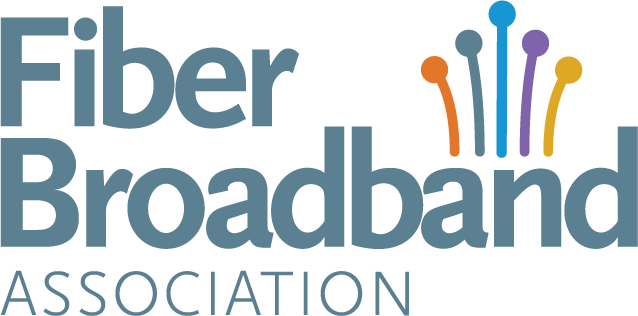Telecom Leaders Unite to Champion Next Generation Technologies So Rural Communities Can Thrive
Telecom Leaders Unite to Champion Next Generation Technologies So Rural Communities Can Thrive
Legacy copper networks are no longer the most viable means to deliver the high-speed connectivity that families and communities need to compete, thrive and grow in today’s world
CHARLOTTE, N.C. — April 23, 2025 — Today, a group of leading telecommunications companies published a strategic paper outlining the advantages of fiber optic, wireless, satellite and coaxial cable technologies for connectivity as copper networks across the country continue to deteriorate and become obsolete. The paper, “Meeting the Needs of Rural Subscribers for Generations to Come,” is a collaborative effort among key players in the high-speed internet service ecosystem highlighting the urgency behind the expansion of broadband access and the need to phase out outdated, legacy copper networks.
Three broadband industry leaders—Calix Inc (NYSE: CALX), Corning Incorporated (NYSE: GLW), and Brightspeed—worked together to author the paper. Calix is a platform, cloud, and managed services company enabling broadband service providers to simplify their businesses, innovate for their subscribers, and grow value for their communities. Corning is a materials science innovator and a pioneer in next-generation fiber, cable, and connectivity solutions. Brightspeed, the nation’s third-largest fiber builder, is quickly empowering more homes and businesses with high-speed connectivity. Collectively, they have a decades-long legacy of making a positive impact on communities through their work with broadband service providers —particularly those communities left on the wrong side of the digital divide.
“Meeting the Needs of Rural Subscribers for Generations to Come” publishes at a critical moment when broadband infrastructure funding is at an all-time high due in major part to the Broadband Equity, Access, and Deployment (BEAD) program—the single largest broadband construction program in U.S. history. This historic level of funding creates an opportunity now – more than ever – to bring high-speed internet access to every community in America and close the digital divide.
These unprecedented levels of grant funding, coupled with providers’ own strategic investment, will help connect communities that have lacked quality options for high-speed connectivity as they historically have been served by aging copper networks. The overall goal – consistent with the national strategy for increasing U.S. competitiveness, is to provide these communities with access to alternative communications technology, especially fiber broadband network connectivity.
“Meeting the Needs of Rural Subscribers for Generations to Come” examines the most used communication technologies — copper, fiber, wireless, low Earth orbiting (“LEO”) satellite, and coaxial cable — and evaluates the ability of each to meet current and future application requirements and user needs. Readers will gain an understanding of the current limitations of copper and how other technologies are better positioned to meet and enable current and future communication technology needs.
“For decades, copper served Americans well — providing the lines of communication needed to reach our loved ones near and far. That was before the arrival of new applications and use cases that need higher speeds and more bandwidth,” said Tom Dailey, Brightspeed senior vice president, public policy, government affairs and regulatory. “Now, it’s time to invest in the technologies that will serve Americans for decades to come by providing the robust connectivity they need to connect to work, stream entertainment, learn, receive telehealth and government services, and fully participate in our hyper-connected world. Copper is the past; fiber, fixed wireless and satellite solutions are the future.”
“Subscribers everywhere are focused on having a great broadband experience—they want highly reliable connectivity that meets today’s needs, while ensuring they stay safe and protected from digital threats,” said Teresa McGaughey, vice president of global field and partner marketing at Calix.
“Fiber optic networks provide unlimited connectivity, enabling subscribers to work, learn, and play from home without interruption—joining video calls while their children complete school projects online. These future-proof networks deliver seamless, secure productivity today and unlock a host of exciting possibilities to add managed services that will enable communities to further grow.”
“As more of our lives take place in the digital world, it’s critical to phase out copper networks built for the landline era and invest in future-ready technologies like optical fiber,” said Bob Whitman, vice president of global market development, carrier networks, for Corning Optical Communications. “With its virtually unlimited bandwidth, fiber can support not only today’s technologies like video streaming, telehealth and remote work, but also AI, machine learning, and cutting-edge applications that haven’t yet been imagined. As the inventors of low-loss optical fiber, Corning is helping operators everywhere build networks that will serve the needs of their customers for generations to come.”
The strategic paper finds that, while copper has historically been a foundational technology for voice and data services, its technical limitations make it poorly suited to meet today’s high-speed internet demands. In contrast, fiber optics offer faster speeds, high reliability, better security and lower maintenance costs. For hard-to-reach locations where fiber is not cost-effective, wireless options such as fixed wireless and low earth orbiting satellites serve as excellent substitutes, providing reliable and high-speed internet access.
About Calix, Inc.
Calix is a platform, cloud, and managed services company. Broadband service providers leverage Calix’s broadband platform, cloud, and managed services to simplify their operations, subscriber engagement, and services; innovate for their consumer, business, and municipal subscribers; and grow their value for members, investors, and the communities they serve.
Our end-to-end platform and managed services democratize the use of data—enabling our customers of any size to operate efficiently, acquire subscribers, and deliver exceptional experiences. Calix is dedicated to driving continuous improvement in partnership with our growing ecosystem to support the transformation of our customers and their communities.
About Corning Incorporated
Corning (www.corning.com) is one of the world’s leading innovators in materials science, with a 170-year track record of life-changing inventions. Corning applies its unparalleled expertise in glass science, ceramic science, and optical physics along with its deep manufacturing and engineering capabilities to develop category-defining products that transform industries and enhance people’s lives. Corning succeeds through sustained investment in RD&E, a unique combination of material and process innovation, and deep, trust-based relationships with customers who are global leaders in their industries. Corning’s capabilities are versatile and synergistic, which allows the company to evolve to meet changing market needs, while also helping our customers capture new opportunities in dynamic industries. Today, Corning’s markets include optical communications, mobile consumer electronics, display, automotive, solar, semiconductors, and life sciences.
About Brightspeed
Headquartered in Charlotte, N.C. and with assets and associated operations in 20 states, Brightspeed provides broadband and telecommunications services through a network platform capable of serving more than 7.3 million homes and businesses. Our 4,000 employees are committed to building a future where more communities benefit from a more connected life, deploying a state-of-the-art fiber network and a customer experience that makes being connected as simple as it should be. For more information, please visit www.brightspeed.com.




